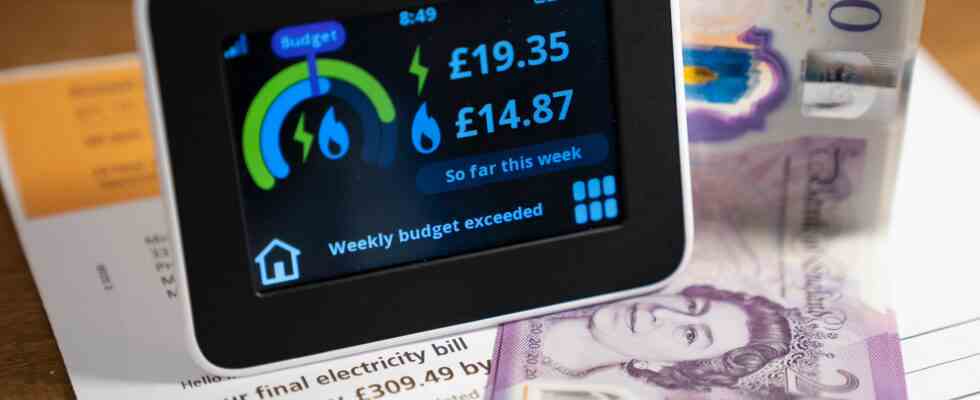Status: 08.09.2022 3:07 p.m
The new British government is taking over part of the sharp rise in energy prices: the costs for electricity and heating are to be limited to the equivalent of 2900 euros per household. Prime Minister Truss also ruled out an excess profit tax.
The new British Prime Minister Liz Truss wants to cap energy costs for private households and companies. In the British Parliament, she promised an energy price guarantee. That means the average annual UK household bill for heating and electricity will be no more than £2,500. The price guarantee should be valid for two years. Public institutions such as hospitals and schools also receive support, but only for six months and not for two years.
From October, energy prices in the UK will soar to such an extent that, without government intervention, the cost to the average household would be around £3,500 a year. That is three times as much as a year ago. British media estimate the cost of the price guarantee at more than 100 billion pounds (115 billion euros).
According to the government, the price cap will reduce the rapidly rising inflation in the United Kingdom by four to five percentage points. The inflation rate reached 10.1 percent in July and is expected to rise to 13 percent by the end of the year.
More fracking, more North Sea oil
According to the new Prime Minister Truss, the government also wants to expand all domestic energy sources in the fight against high energy costs. The country has drastically increased the amount of energy generated by wind power in recent years and plans to build more nuclear power plants. In addition, they want to approve more oil drilling in the North Sea and lift the ban on fracking. Britain imports most of its natural gas from Norway rather than Russia.
Truss also announced a new energy supply task force. This is to negotiate long-term contracts with domestic and foreign suppliers. According to the Reuters news agency, the cap on energy prices is one of the largest financial interventions in Great Britain since the end of the Second World War. Truss has previously said she prefers tax cuts to financial aid.
Opposition calls for excess profits tax for oil companies
Truss rejected an excess profit tax for oil companies demanded by the opposition. The opposition criticized that the bill is now being paid solely by the taxpayer. Labor Party leader Keir Starmer said oil majors are expected to make £170bn in windfall profits over the next two years on rising prices and yet remain unpunished.

